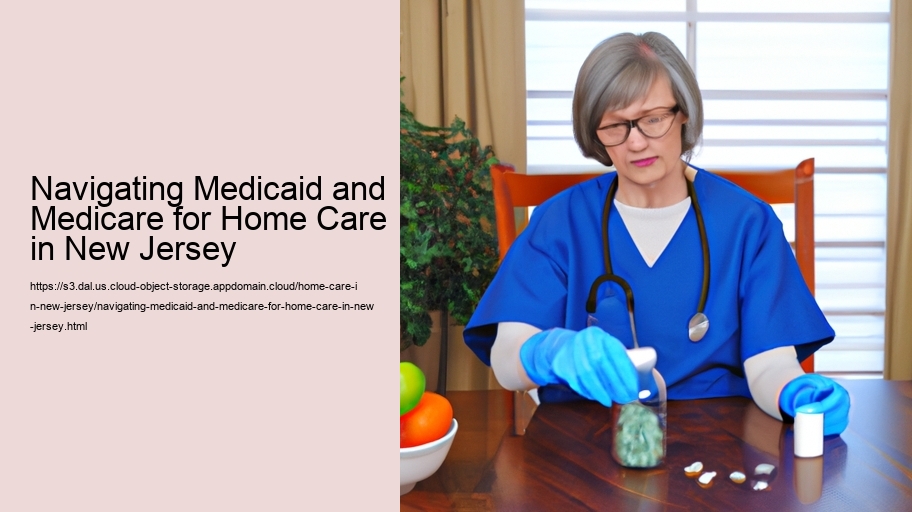Navigating Medicaid and Medicare for home care in New Jersey can be a complex process, yet it is crucial for many individuals and families seeking to ensure the well-being of their loved ones. Home Care Services for Seniors in New Jersey . Both Medicaid and Medicare offer vital support, but understanding their differences, eligibility requirements, and the specific benefits they provide can be overwhelming. This essay will explore the intricacies of these programs, focusing on their application to home care in New Jersey, while offering guidance on how to effectively maneuver through the system.
Medicaid and Medicare are both government-sponsored programs aimed at providing healthcare assistance, yet they serve different populations and offer distinct types of coverage. Medicare, primarily a federal program, generally caters to individuals aged 65 and older, regardless of income, as well as younger people with disabilities. It offers coverage for hospital care (Part A), medical services (Part B), and prescription drugs (Part D). While Medicare provides some coverage for home health care, it is often limited to short-term needs following a hospital stay or for specific skilled services.
On the other hand, Medicaid is a joint federal and state program that assists low-income individuals and families, and its coverage can be more comprehensive for long-term care needs, including home care. In New Jersey, Medicaid offers several programs tailored to meet the diverse needs of its residents. The Managed Long Term Services and Supports (MLTSS) program, for instance, is specifically designed to provide home and community-based services for individuals who require long-term care. This program allows eligible participants to receive necessary care in the comfort of their own homes, thereby promoting independence and improving quality of life.
Eligibility for Medicaid home care services in New Jersey involves meeting certain income and asset limits, which can vary based on the specific program. For seniors and individuals with disabilities, the financial eligibility criteria can be quite stringent, requiring careful planning and, in some cases, the assistance of a legal or financial advisor specializing in elder law. It's important to note that New Jersey applies a "look-back period" for asset transfers when determining eligibility, which means that any significant transfers of assets made within five years prior to applying for Medicaid can affect one's qualification.
For families navigating this process, understanding the application procedures and required documentation is crucial. Applying for Medicaid typically involves submitting detailed financial information, proof of residency, and medical documentation to the local County Board of Social Services. Additionally, New Jersey offers resources such as the Aging and Disability Resource Connection (ADRC) and State Health Insurance Assistance Program (SHIP) to provide guidance and support throughout the application process.
Medicaid's emphasis on home and community-based services reflects a broader trend towards deinstitutionalization and personalized care, recognizing that many individuals prefer to age in place rather than move to a nursing facility. This shift not only aligns with personal preferences but also poses benefits to the healthcare system by potentially reducing costs associated with institutional care.
For those eligible for both Medicare and Medicaid, often referred to as "dual eligibles," navigating the coordination of benefits can be particularly challenging. In such cases, Medicaid acts as a secondary payer, covering services and costs not fully paid by Medicare. Understanding how these benefits interact can help maximize coverage and minimize out-of-pocket expenses.
In conclusion, while navigating Medicaid and Medicare for home care in New Jersey can be daunting, it is a vital step in ensuring that individuals receive the care they need in a setting that promotes dignity and independence. By understanding the differences between these programs, eligibility requirements, and available resources, families can more effectively plan for and manage their loved ones' care needs. As the landscape of healthcare continues to evolve, staying informed and seeking professional guidance when necessary will be key to successfully navigating these essential programs.

